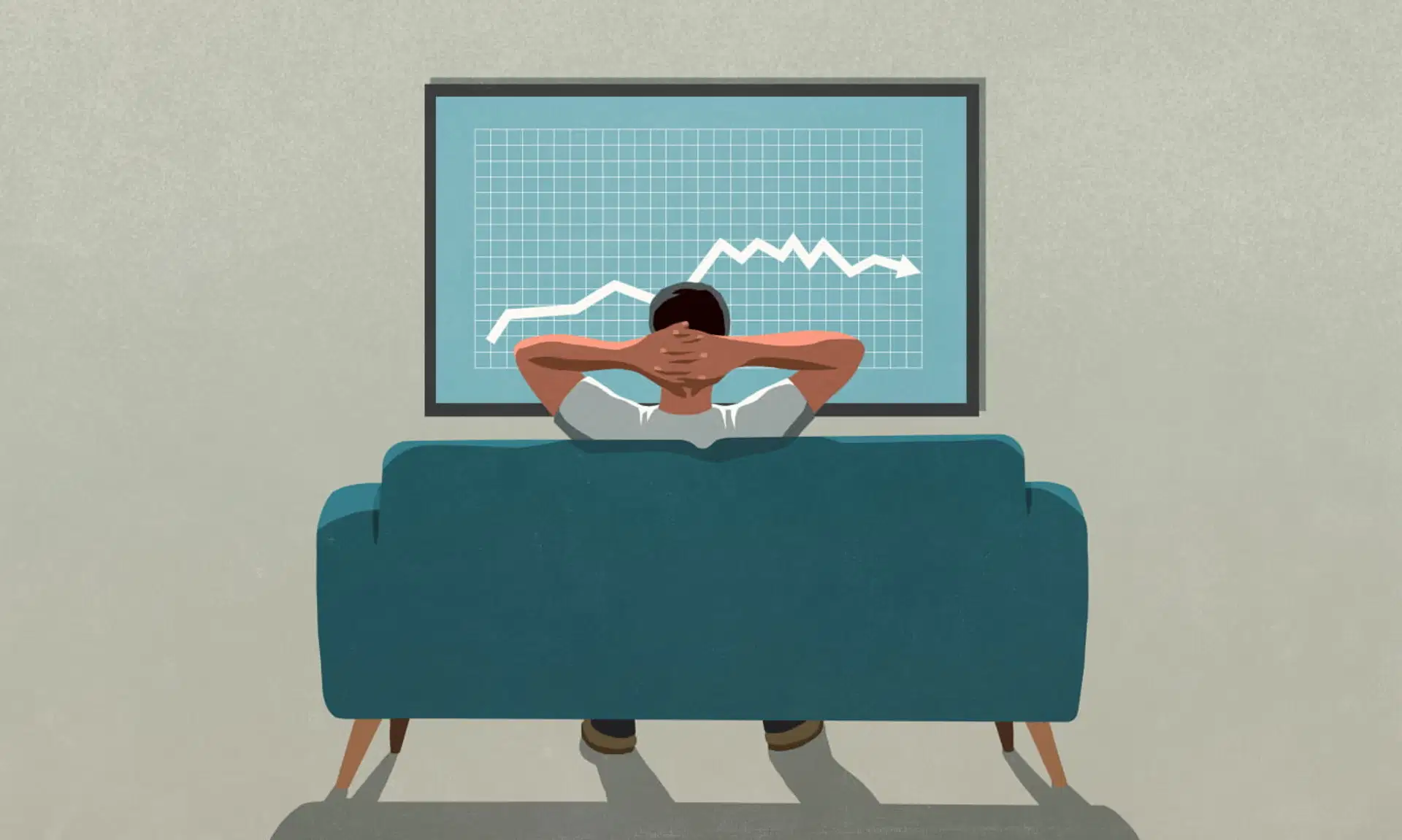Should you save or invest? How to make the right money moves
6 min | 10 February 2025


Remember your first piggy bank? Or maybe it was an old jam jar, or a cartoon-embossed wallet. In our earliest dealings with money, most of us only knew of two options: spend it or save it. As we grew, chances are we came to learn about the third option – investing. So, if we’re holding on to our pennies, should we save or invest?
What’s the difference between saving and investing?
Should we smash the proverbial piggy bank and double down on investing? Or is saving the tried-and-true way to go? Well, first things first: what’s even the difference?
In both cases, you’re putting away some of your disposable income on a regular basis so it can grow over time.
With savings, you’re purely limited to how much you deposit and the interest rate associated with that account. So, if you use that old piggy bank, there’s zero interest. While the average UK savings account interest rate in 2022 was 0.59%, you can get more than that in 2023, with high street names now offering over 3% on some accounts.
With investing, rather than just depositing your cash, you’re actually buying assets, which should (ideally, and in the long run) increase in value over time, although this isn't guaranteed. Since it’s impossible to predict how the value of an asset will change over time, the process of any growth is more complex. That said, the annual returns from the FTSE 100 since its creation in 1984 – 2022, have averaged 7.4%, although past performance is not a reliable indicator of future performance.
Theory vs practice
So, over time, investing has the potential to provide greater returns than savings. However, it’s important to note that we’re in a unique point in history, where the financial climate is rather cloudy. At times like these, where inflation is well above the interest rate of savings accounts, and the value of investment assets are in flux, growth may be stunted for the time being. But as history has shown, after the worst financial downturns, conditions are likely to improve, eventually.
Should I save or invest?
OK, so now that we know the difference, this question comes back into play. And the answer? Both, ideally. But the order’s important.
Step 1 – When it rains, it pours
The general rule is to start your savings/investments journey in one place – your emergency fund, or ‘rainy day fund’. This is a pot of cash that covers 3–6 months of your fixed costs. It could be a lifeline in the event of job loss or any emergency that affects your income. It’s also there for sudden, unexpected costs (did someone say, ‘boiler breakdown’?), and it’s a good idea to make this a priority as soon as you start saving.
If you'll need to access this cash often and at short notice, it makes sense to keep it in an easy-access savings account – ideally one that has as high an interest rate as possible. If you don't think you'll need to access this cash other than in an emergency, you could also consider placing some in a fixed rate savings account that could give you a higher interest rate, but beware of any fees/charges or loss of interest you might incur if you need the funds early.
Step 2 – Wants vs. needs
Once your fixed costs are being paid and you’re feeding your emergency fund, we get to set aside the necessities and think about the things you actually want. Redecorate your home, buy a new car, book a much-deserved holiday? All up for grabs with this bundle of cash.
Like the emergency fund, this type of stash is generally considered as ‘short-term savings’ – so you might want to keep it in a relatively easy-access savings account, such as Chase's easy-access saver account.
18+, UK residents. A Chase current account is required to open a saver account.
Step 3 – Medium-to-long-term
What we’ve covered so far is short-term savings – cash you’ll need within about five years. This type of saving generally lies within the domain of traditional savings accounts. But when it comes to medium- and long-term ‘savings’ – cash you’ll need in five years or more – this is where investments could start to come in, since investing is all about time.
In fact, ‘time in the market’ is a concept finance folk might mention, referring to the idea that, in general, the longer you invest, the less likely you are to lose money. This is for a few reasons. Historically major asset classes (like stocks, shares or property) have generally gone up in value over time (remember they can also go down). Plus, the effects of compounding growth (gains on the money you’ve deposited, as well as the previous gains earned) can only be achieved with the benefit of time.
So, should you save or invest? Both can be great ideas, if you're happy with the risk that can come with investing. Short-term savings should be easily accessible, with savings products being ideal. And for large, future purchases, such as a house, a year off work or education for your kids – investing a regular contribution to a diverse set of assets could be a great way to maximise your returns.
Ready to invest?
Introducing Nutmeg, the digital wealth manager that's part of the Chase family. You can now open an account with Nutmeg and keep an eye on your investments from the Chase app – so you can see everything in one place.
As with all investing, your capital is at risk. The value of your investment can go down as well as up, and you may get back less than you invest.
Nutmeg is authorised and regulated by the FCA in relation to certain investment services and restricted advice only. Chase is a trading name of J.P. Morgan Europe Limited. Nutmeg and J.P. Morgan Europe Limited are J.P. Morgan companies. Products provided by Nutmeg are not guaranteed by Chase. Before applying, you should consider if a Nutmeg account and its features are suitable for you and your investment needs.
Disclaimer: The Hub is intended as a knowledge portal to provide information on a range of topics, including financial products and lifestyle management. These articles are not financial advice. Articles may reference products and services that Chase UK does not currently offer.






